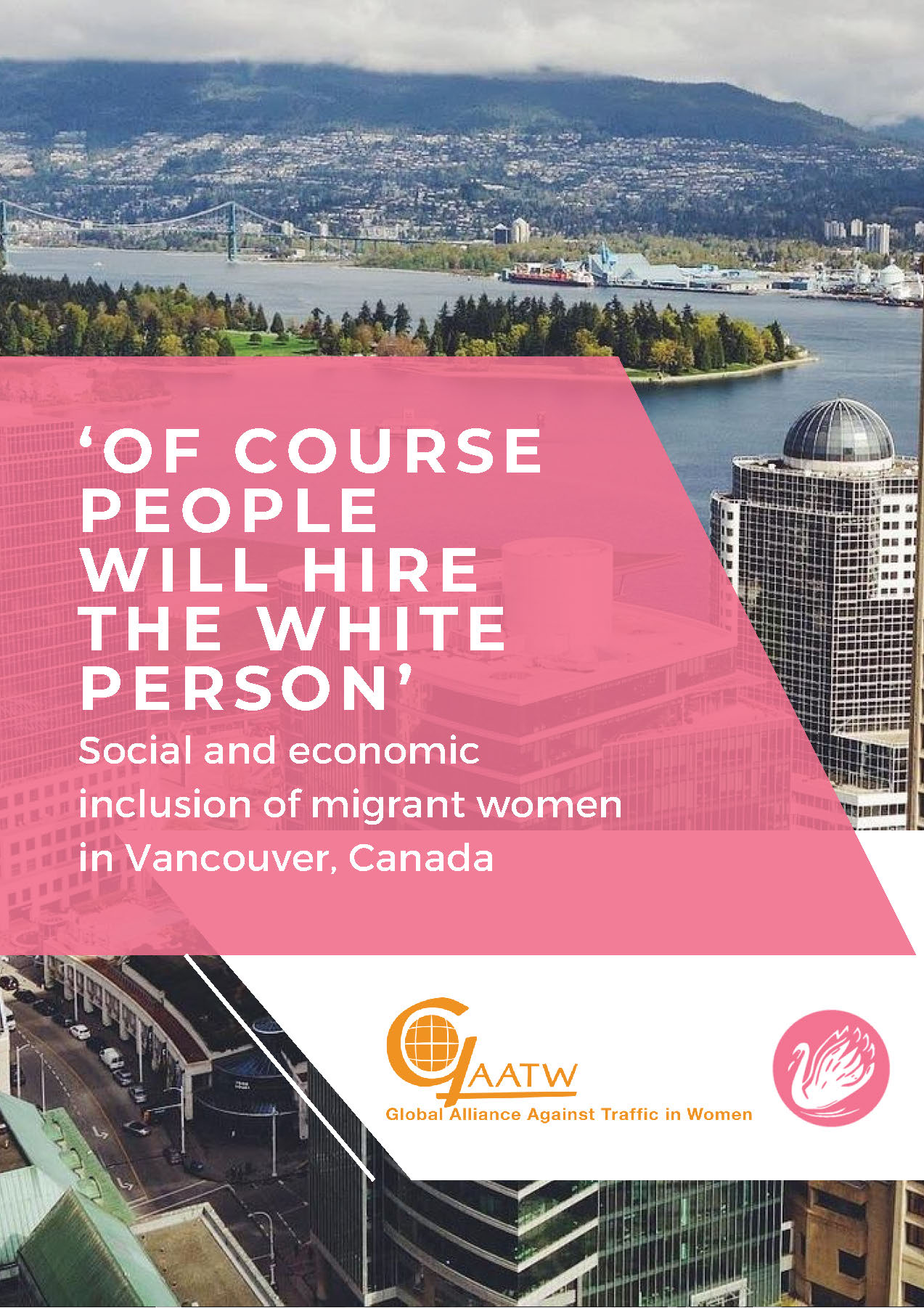Canada needs to do more to support the socioeconomic inclusion of migrant women
 Migrant women in Canada face challenges to finding productive, well-paid, and rewarding work, and thus feeling ‘integrated’ into Canadian society, according to the new community research report we published today with our member SWAN in Vancouver.
Migrant women in Canada face challenges to finding productive, well-paid, and rewarding work, and thus feeling ‘integrated’ into Canadian society, according to the new community research report we published today with our member SWAN in Vancouver.
Most of the women described how their limited ability to read, write, and communicate in English prevented them from finding decent employment. One woman from China recounted how in the beginning ‘The major difficulty was my poor English skills. I couldn’t put a whole sentence together. And I couldn’t understand anything.’
Additionally, women’s past work experience from their countries of origin were not recognised by Canadian employers, which limited their opportunities to find work in their area of expertise. One woman explained her difficulties finding work: ‘When I first came to work at the company [in Canada], I started from the lowest level, which is the assistant position. It was actually a big step down compared with the job I had before [in China].’ Another one said ‘If you don’t have a certain amount of experience in Canada that’s related to the job you’re applying, there is a ninety percent chance that you won’t be considered. Your work experience abroad won’t be considered.’ Likewise, women shared that their educational qualifications were not recognised by Canadian employers: ‘My major is no longer important. […] As an immigrant here, I won’t be able to find a job that uses my major perfectly.’
Many women also spoke about how family responsibilities in Canada or their countries of origin added an extra burden as it became an absolute necessity to find work immediately. The following quote by a woman from Latin America exemplifies this situation: (speaking through a translator) ‘She’s not married, she doesn’t have kids, but she has the responsibility of taking care of her parents because she’s in charge of the house. Because her father is not working anymore, so she has to take care of everything pretty much.’ A woman from China said, ‘If I was going to work full time, I wouldn’t be able to take care of my family.’
Another difficulty that some women described was the passive discrimination by employers for their inability to ‘fit’ within Canadian culture. One Chinese woman who worked as a bartender said that ‘when it got busy, I would just mix drinks very fast. And I didn’t care to say hello or ask them how they’re doing. So some customers thought I was rude.’ Research participants also felt that their race or country of origin meant that they have fewer work opportunities. One Chinese woman said, ‘With a white person, a yellow person, and a Black person, of course people will hire the white person’ while another added ‘just by glancing at your name, they won’t even offer you an interview’.
All of this meant that women could only find employment by other migrants from their country or region of origin and had to accept any type of work, which in some cases involved exploitative working conditions. Women spoke about receiving low salaries, working long hours, performing tasks that were not agreed in advance, and working on short-term, insecure contracts.
At the same time, most women perceived Canada as a just and fair country and attributed any difficulties they faced to their own limitations such as low English proficiency.
When asked about their personal aspirations, many women shared that they hope to one day start their own business or take on higher positions and more responsibilities in their current jobs.
The research shows that migrant women are making important contributions to Canadian society as well as their home countries. The Canadian government should support them in these efforts by facilitating their access to regular migration status, language classes, and work opportunities relevant to their education and work experience. The government should also combat negative stereotypes and discrimination of migrants and promote social inclusion and equal opportunities for all. Given the invaluable work of civil society organisations like SWAN, the Canadian government should consult them in the development and implementation of policies related to migration and human trafficking and support their work.
The research was conducted in 2020-2021 by GAATW member SWAN, a community organisation for im/migrant sex workers in Vancouver. It involved thirty women from China, Chinese Taipei (the island of Taiwan), Chile, Mexico, Guatemala, India, and Iran.
Read the community report here.

